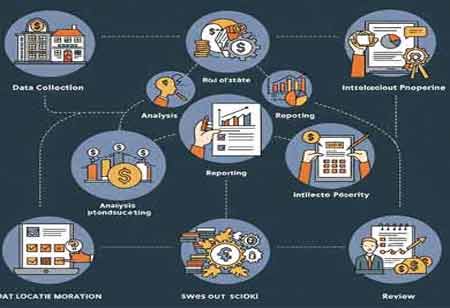CLOSE
Specials
- RegTech Europe
- Financial Risk Management APAC
- Investment Banking APAC
- Corporate Advisory APAC
- Regtech APAC
- Escrow Services
- Digital Banking Latam
- Trading Solutions APAC
- Treasury Management Europe
- CPA Firms Canada
- Financial Risk Management Europe
- Mortgage Broker
- Financial Licensing Europe
- RIA Advisory Europe
- FinTech Canada
- Financial Asset Management APAC
- Investment Banking Canada
- Payment Solution
- Lending Mangment Latam
- Payment Solution Europe
- Broker Dealer Firms Canada
- Alternative Investments Canada
- Financial Fraud
- Investment Management Latam
- Financial Health Europe
- Lending mangment
- Financial Marketing
- Proprietary Trading Europe
- Wealth Management
- FinTech
- Financial Brokerage Firm APAC
- Investment Advisory Europe
- Investment Advisory APAC
- Wealth Management MENA
- Claim Adjusting
- Claim Adjusting APAC
- Mergers and Acquisitions Consulting APAC
- Equipment Financing
- CPA Firms
- Mergers and Acquisitions Consulting Canada
- Investment Services
- Valuation Services Canada
- Wealth Management APAC
- Broker Dealer Firms
- Debt Collection Agencies
- Mergers and Acquisitions Consulting
- FinTech Europe
- Fintech Latam
- Financial Planning / Retirement
- Investment Management
- Financial Compliance
- Digital Banking Europe
- CFO Services
- Debt Collection Agencies Europe
- Wealth Management Europe
- Mergers and Acquisitions Consulting Europe
- Financial Restructuring Europe
- Financial Portfolio Management Canada
- Business Loan
- Payment and Card Latam
- Wealth Management Latam
- Mergers and Acquisitions Consulting Latam
- Tax Advisory Canada
- Trading Solutions Europe
- Alternative Investments
- Digital Insurance Europe
- Investment Services Latam
Weekly Brief
×Be first to read the latest tech news, Industry Leader's Insights, and CIO interviews of medium and large enterprises exclusively from Financial Services Review
Thank you for Subscribing to Financial Services Review Weekly Brief
Digital-First Restructuring: The New Normal for European Financial Institutions
The pandemic has accelerated digital adoption in financial services, prompting European banks and insurers to invest in digital infrastructure, cloud migration, API integration, data analytics, and remote services.

By
Financial Services Review | Tuesday, September 03, 2024
Stay ahead of the industry with exclusive feature stories on the top companies, expert insights and the latest news delivered straight to your inbox. Subscribe today.
The pandemic has accelerated digital adoption in financial services, prompting European banks and insurers to invest in digital infrastructure, cloud migration, API integration, data analytics, and remote services.
FREMONT, CA: The pandemic has significantly accelerated the shift in consumer behaviour, leading to a marked increase in digital adoption across various industries, including financial services. In response, European financial institutions are undergoing a fundamental restructuring, focusing on prioritising digital channels and remote services to remain competitive and meet evolving customer expectations.
Critical Trends in Digital-First Restructuring
European banks and insurers invest significantly in digital infrastructure to deliver a seamless customer experience. These efforts include cloud migration to enhance scalability and cost-efficiency, API integration to ensure smooth interactions between various systems and third-party providers, and data analytics to gain deeper insights into customer behaviour and optimise digital offerings. Additionally, financial institutions are expanding their digital channels by offering comprehensive mobile banking apps, user-friendly online banking portals, and AI-powered chatbots and virtual assistants for instant customer support. Remote onboarding and customer service models are being adopted to streamline operations and reduce costs, incorporating secure digital identity verification, video conferencing, and digital document signing. Furthermore, embracing open banking principles allows these institutions to collaborate with fintech startups, providing innovative products and services such as payment initiation, account information services, and personalised financial planning tools.
The impact of digital transformation on employment and the workforce within financial institutions has been profound. Traditional roles, such as branch tellers and back-office operations, have seen significant job losses due to the shift towards digital channels. However, this transition has also spurred the creation of new roles in digital development, data analytics, cybersecurity, and customer experience. To adapt, financial institutions are investing in upskilling and reskilling their workforce to meet the demands of this digital era.
The regulatory landscape has also evolved, particularly with the implementation of open banking regulations in Europe, which have accelerated the adoption of digital-first strategies. These regulations allow third-party providers to access customer data, fostering innovation and competition. Concurrently, financial institutions must navigate stringent data privacy regulations, such as the General Data Protection Regulation (GDPR), and invest in robust cybersecurity measures to protect customer data from increasingly sophisticated cyber threats.
Artificial intelligence (AI) and machine learning (ML) are set to play an increasingly pivotal role in financial services, driving personalised customer experiences, enhancing fraud detection, and optimising risk management. Blockchain technology also holds the potential to transform financial services by streamlining processes, reducing costs, and improving security. Additionally, the growing demand for sustainable and socially responsible financial products and services underscores the importance of incorporating environmental, social, and governance (ESG) factors into digital strategies.
The European financial services industry's digital-first restructuring represents a pivotal trend transforming consumer interactions with banks and insurers. By emphasising digital channels and remote services, financial institutions can enhance customer satisfaction, lower operational costs, and maintain competitiveness in a rapidly evolving market.

Copyright © 2025 Financial Services Review. All rights reserved





